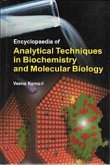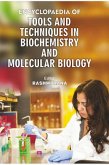Biochemistry, sometimes abbreviated as "BioChem", is the study of chemical processes in living organisms. Biochemistry governs all living organisms and living processes. By controlling information flow through biochemical signalling and the flow of chemical energy through metabolism; biochemical processes give rise to the seemingly magical phenomenon of life. Much of biochemistry deals with the structures and functions of cellular components such as proteins, carbohydrates, lipids, nucleic acids and other biomolecules although increasingly processes rather than individual molecules are the main focus. Over the last 40 years biochemistry has become so successful at explaining living processes that now almost all areas of the life sciences from botany to medicine are engaged in biochemical research. Today the main focus of pure biochemistry is in understanding how biological molecules give rise to the processes that occur within living cells which in turn relates greatly to the study and understanding of whole organisms. Since the late 1950s and early 1960s, molecular biologists have learned to characterize, isolate, and manipulate the molecular components of cells and organisms. These components include DNA, the repository of genetic information; RNA, a close relative of DNA whose functions range from serving as a temporary working copy of DNA to actual structural and enzymatic functions as well as a functional and structural part of the translational apparatus; and proteins, the major structural and enzymatic type of molecule in cells. One of the most basic techniques of molecular biology to study protein function is expression cloning. In this technique, DNA coding for a protein of interest is cloned into a plasmid. It is expected that the encyclopaedia will provide a fund of rich experiences to the students and teachers.
Dieser Download kann aus rechtlichen Gründen nur mit Rechnungsadresse in A, B, BG, CY, CZ, D, DK, EW, E, FIN, F, GR, HR, H, IRL, I, LT, L, LR, M, NL, PL, P, R, S, SLO, SK ausgeliefert werden.









